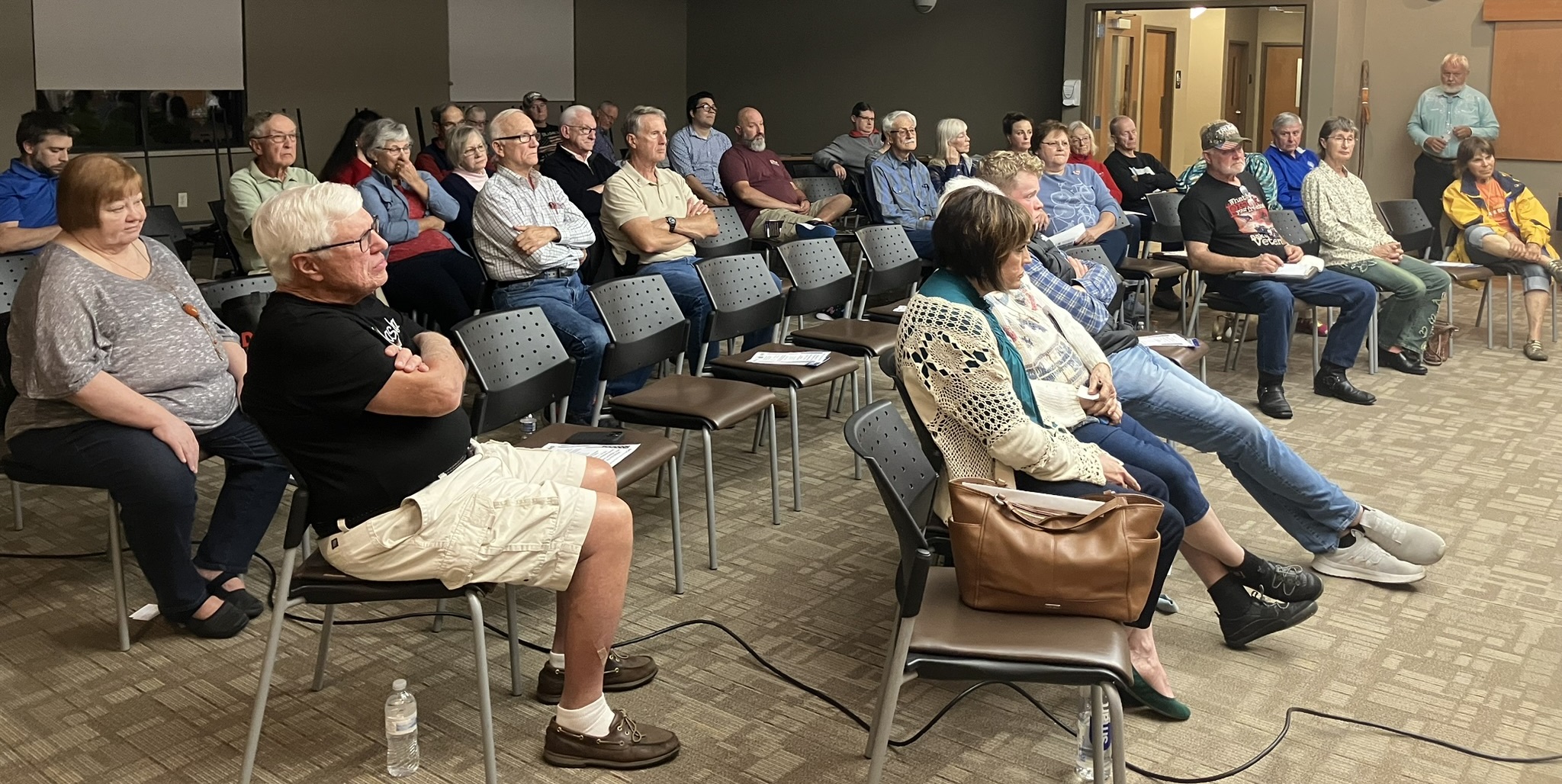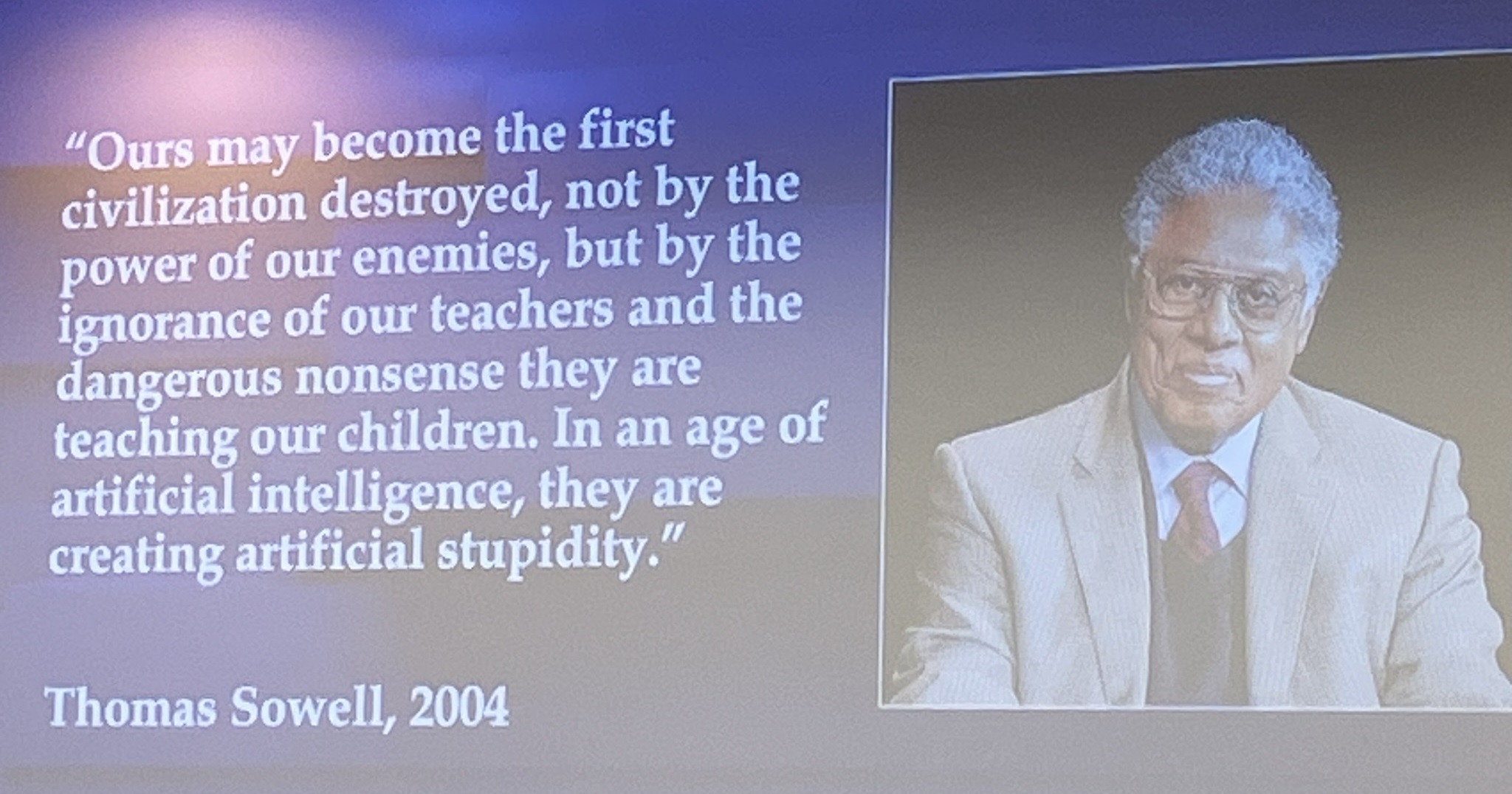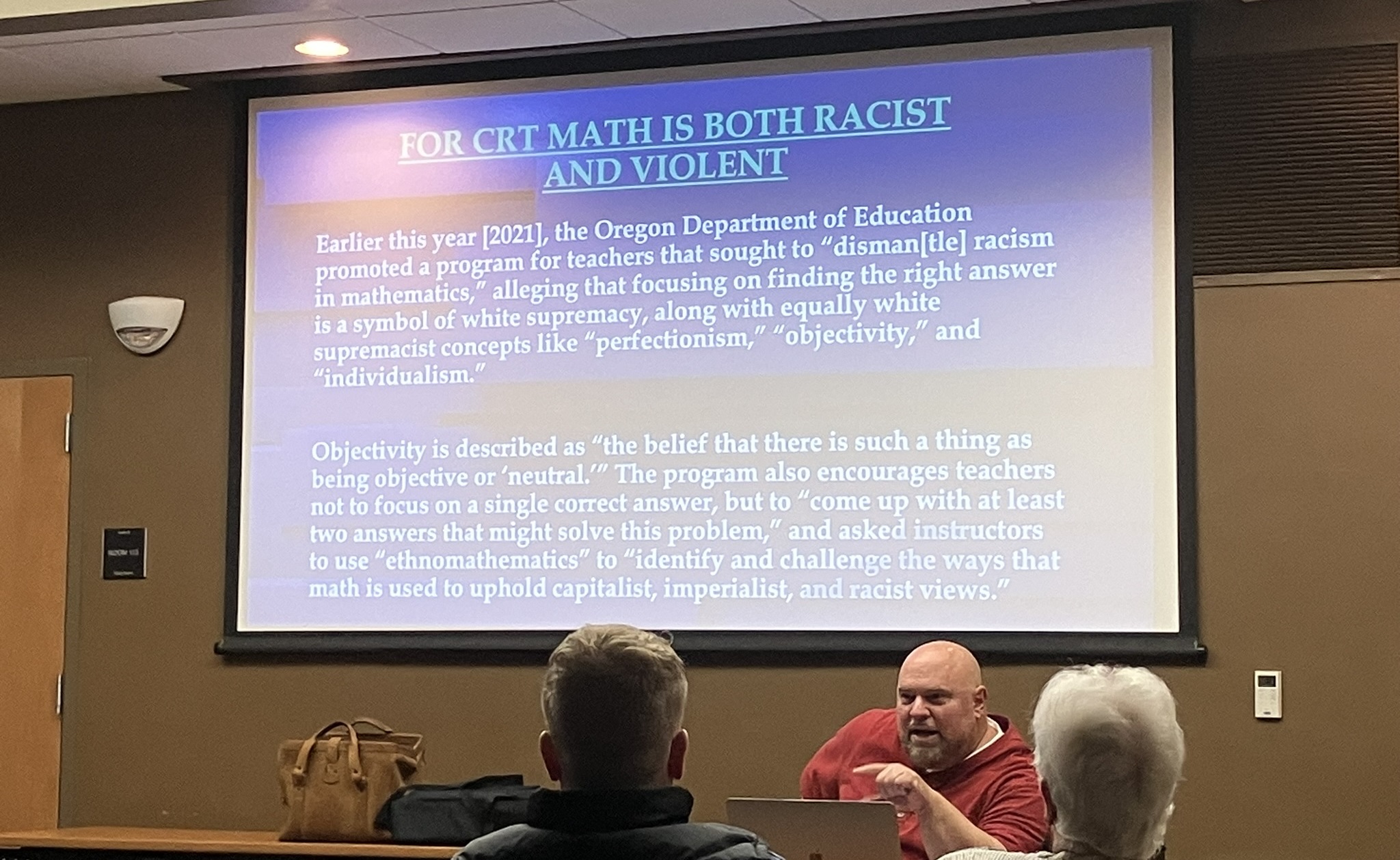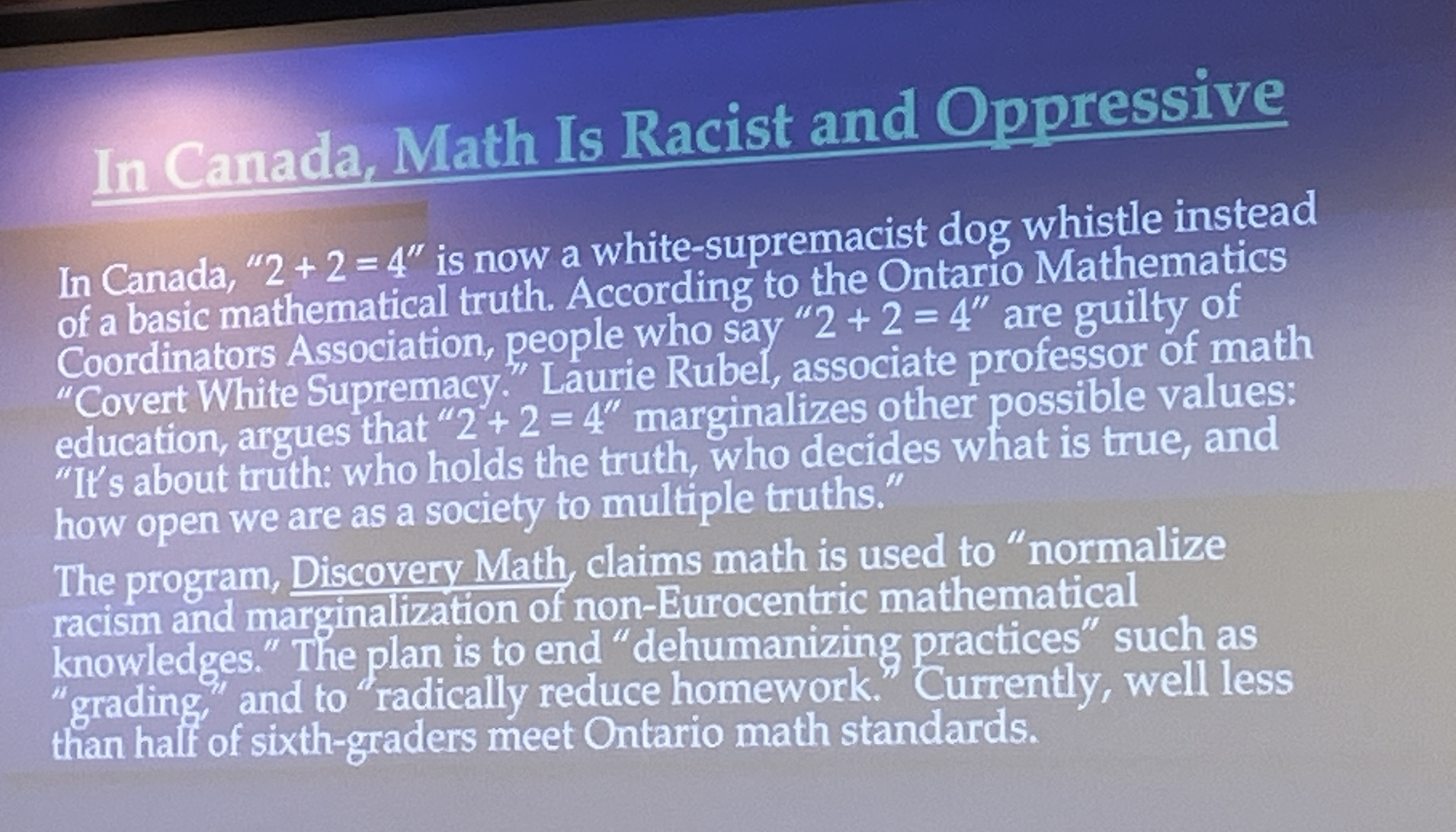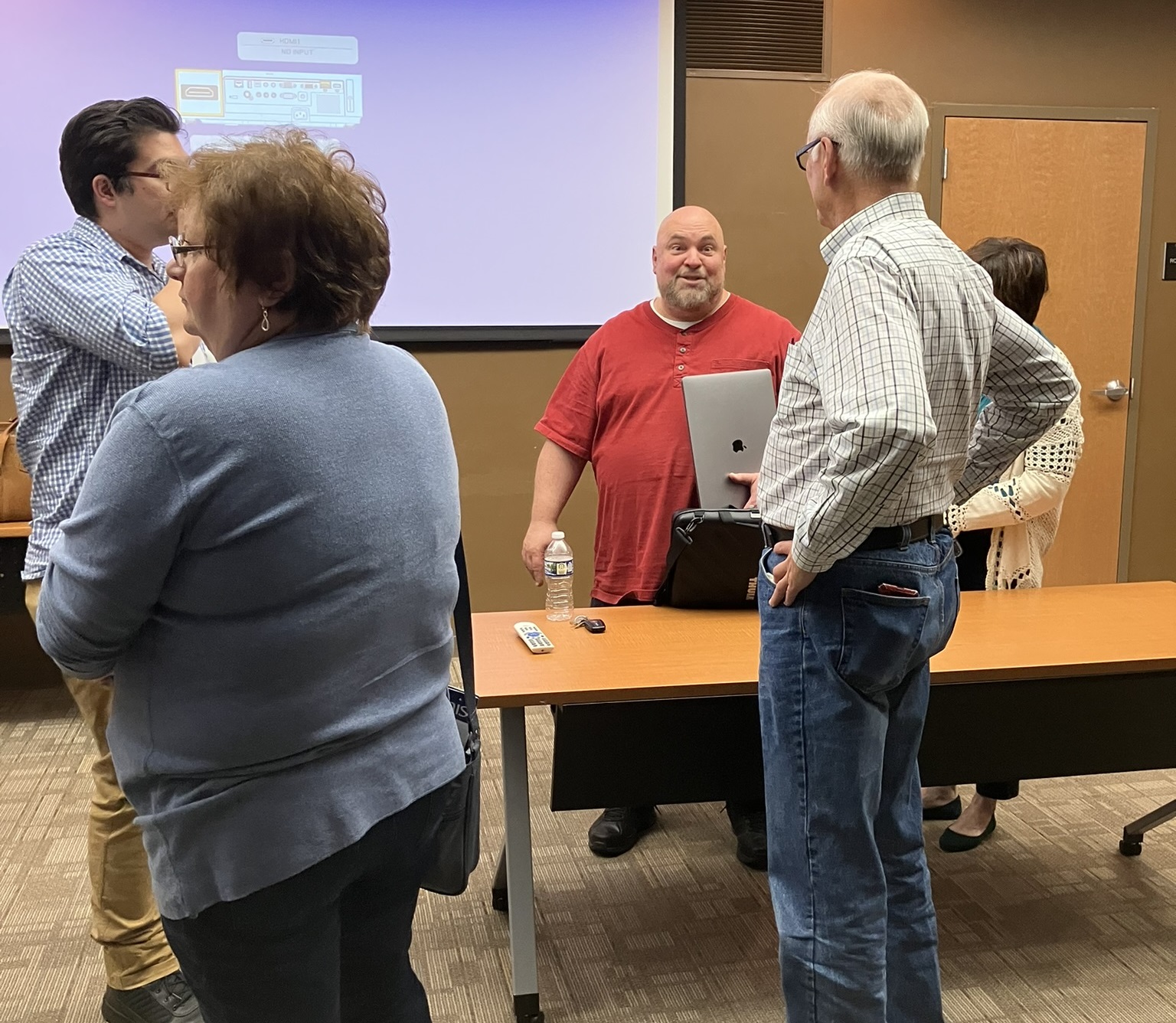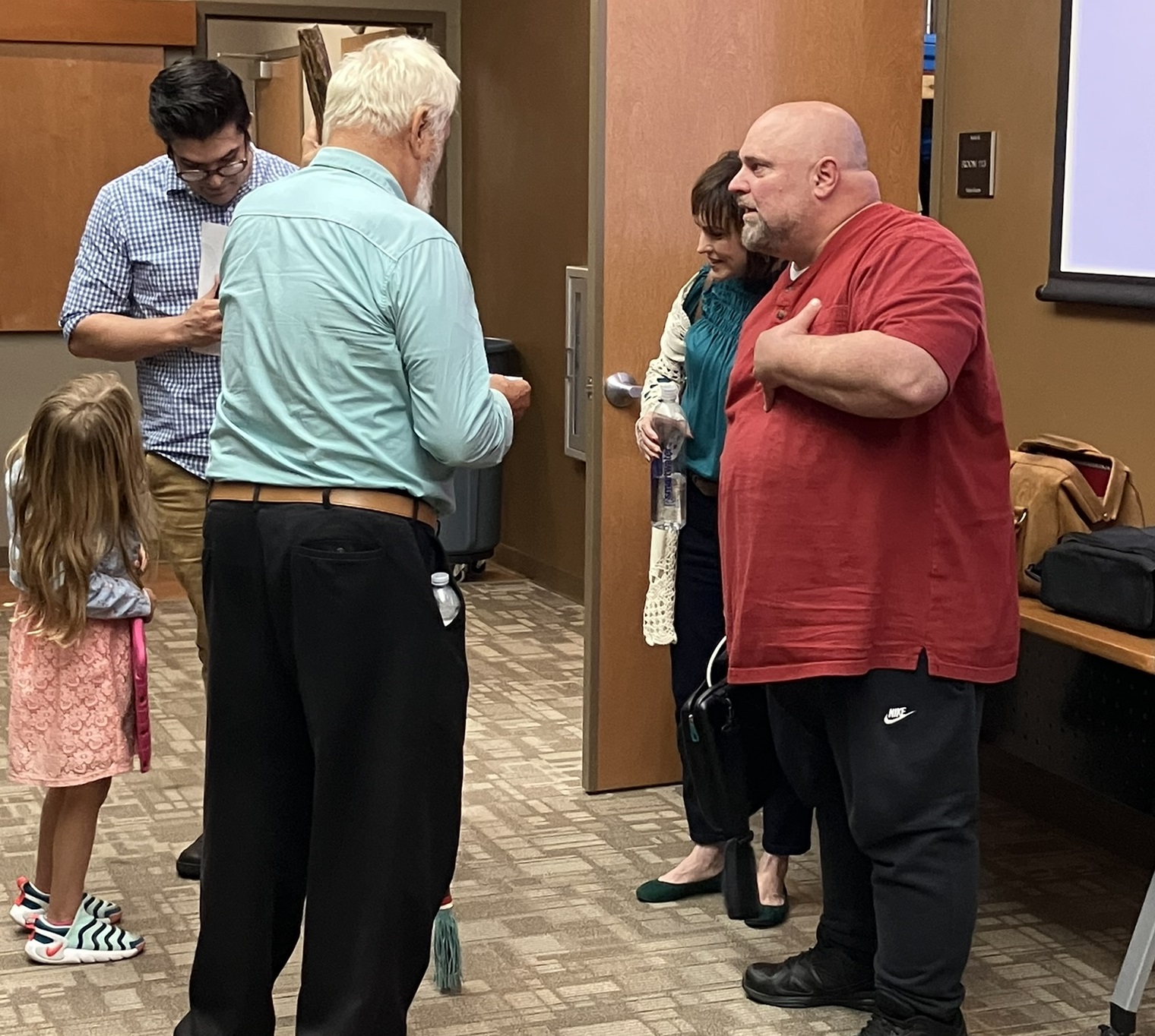Northeast Wisconsin (N.E.W.) Patriots’ September meeting, held at the Lawrence Town Hall on September 19, featured a presentation by Dr. Duke Pesta, who addressed the crisis in public education “American Public Schools: From Failure to Fascism.” He focused specifically on critical race theory (CRT) and social-emotional learning (SEL).
Critical Race Theory
He started by explaining how Common Core became “the final piece of the pipeline to get the feds into education.” Construction of that pipelines began in 1979, when the federal Department of Education was created.
To bribe states into adopting Common Core, the U.S. Department of Education funded hundreds of millions of dollars in federal “Race to the Top” (RttT) grants. State officials hadn’t even seen the Common Core standards, which weren’t ready for two years after the RttT grants were given. States had no role in developing those standards, but to get the grants they had no choice but to adopt Common Core, sight-unseen. The RttT grants were applied for by, and sent directly to, the individual schools, entirely bypassing the state-level education apparatus (and state legislatures).
Similarly, to bribe schools into adopting CRT, the federal government followed this same model when it came time to distribute COVID monies to schools. The funds were initially given to the U.S. Department of Education, which provided grants directly to schools. And schools’ grant applications were “prioritized” if they adopted CRT.
CRT “claims America is a systemically racist county.” The Left claims this because class warfare doesn’t work in America to foment revolution ... so they use race instead. Pesta said CRT aims to “pull the scabs off the healing that’s been happening since 1965.”
CRT “has nothing to do with race,” Pesta said, “and everything to do with ‘equity.’” It started with Common Core, where the word “common” refers to “lowest common denominator.” Since it’s not possible in public education to achieve “equity” by raising achievement for all students, Common Core, CRT, and the like aim to achieve equity by lowering achievement for everyone.
Pesta played several videos, including:
- Shelby Steele – who said the United States is not a racist country, but rather a country that is rooting for minorities, wanting them to succeed.
- A parent at a school board meeting – who said “We believe the lives we live.” We know our black neighbors aren’t victims or oppressed, he said, and we know our white neighbors are not oppressors.
- Another parent – who pleaded with the school board to “let racism die the death it deserves. CRT is just fanning the few embers of what little racism exists.”
Pesta warned that our Republican elected officials fear being called “racist,” so we, their constituents, need to stand up.
Social-Emotional Learning
Social-emotional learning is “the new thing,” Pesta said. It means education is no longer about reading, writing, and arithmetic – but rather about compassion, empathy, and feelings. “SEL is a way to use the schools to effect radical social change,” he warned.
Public schools no longer emphasize learning and achievement. “Everything they do,” Pesta said, “is widening the achievement gap.” In 2000, he noted, 85% of Wisconsin students were proficient.” In 2022, he said 32% read at grade level and only 30% can do math at grade level.
“The more schools fail, the more they politicize the classroom ... and the more money they get,” Pesta said, noting the Wisconsin General Assembly gave public schools a $1 billion budget increase this year.
Concluding Remarks
Pesta expressed frustration that Republicans never put up a serious candidate for superintendent of the state Department of Instruction.
He encouraged conservatives to do that, and also encouraged them to take over school boards. But he reminded the audience that when you are on a school board “all you can is play whack-a-mole. If a parent calls your attention to a bad book, you can get rid of it, but you have no control over what they replace it with.”
He said parents really need to be pulling their kids out of public schools. “If enough pull out,” he said, “they’ll change, because schools need enrollment to get funding.”


